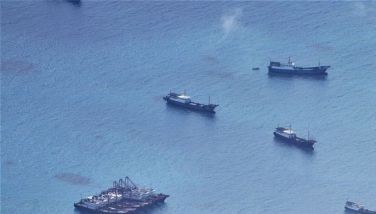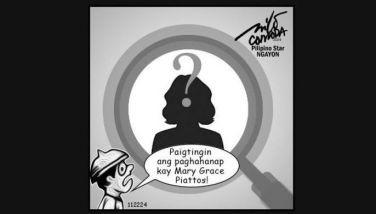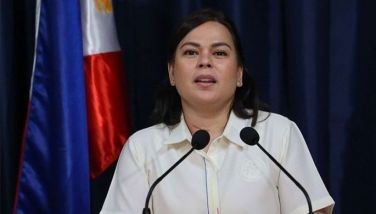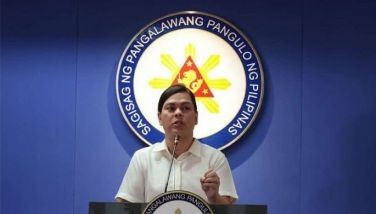Duterte signs law transferring police academy, institute to PNP
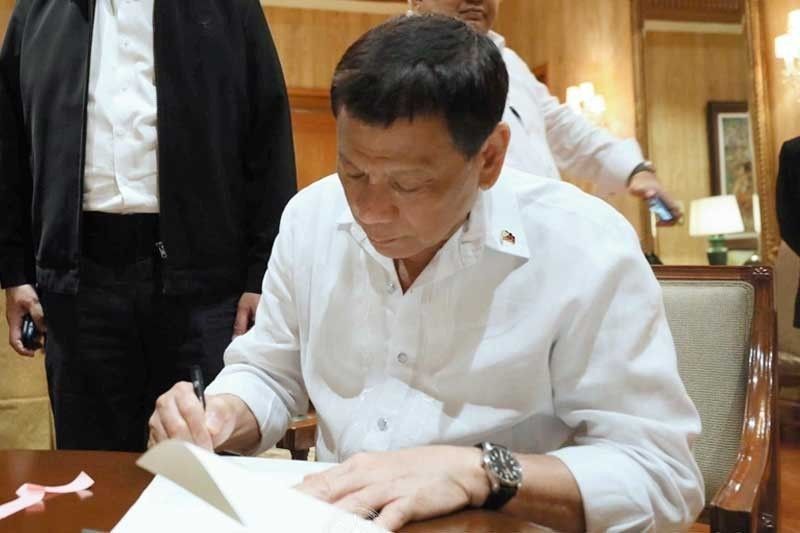
MANILA, Philippines — President Duterte signed into law a measure that transfers the Philippine National Police Academy (PNPA) and National Police Training Institute (NPTI) from the Philippine Public Safety College (PPSC) to the PNP nearly two years after he complained about “sloppy” policemen.
The transfer is contained in Republic Act 11279 signed by the President last April 12.
It amended some provisions of the Department of the Interior and Local Government (DILG) Act of 1990.
Under the new law, the PNP shall have administrative and operational supervision and control over the PNPA “to better achieve the goals of a highly efficient and competent police force.”
Because of the new law, PPSC now consists of the National Fire Training Institute, National Police College, National Forensic Science Training Institute, National Jail Management and Penology Training Institute and other special training centers as may be created by the DILG.
The college previously consisted of the PNPA, Fire Service Training Center, Philippine National Training Center, National Police College and other special training centers.
The PNPA will continue accommodating cadets for the Bureau of Jail Management and Penology (BJMP) and Bureau of Fire Protection (BFP) for five years.
The period may be extended by the PNP upon the request of BJMP and BFP in case PPSC is still not able to provide the education and training required by the two bureaus.
The DILG, in consultation with the PPSC, has been authorized to create a separate academy for the two bureaus.
“Thereafter, the PNPA shall produce graduates who will exclusively join the PNP,” the new law read.
A former PNP chief, Sen. Panfilo Lacson, authored the new law.
“With the transfer to the PNP of the training of police recruits, we can strengthen the foundation of a competent police force not just physically but also morally,” said Lacson, who headed the PNP from 1999 to 2001.
Lacson cited the hearings in the Senate in crafting the law. He said that in the past months, several police officers were involved in heinous crimes.
Lacson said many new police officers are involved in bribery, extortion, kidnapping, illegal drugs and even planting of evidence.
Lacson also recalled some non-commissioned police officers were linked to a kidnap-for-ransom case in Taguig City, while PNPA graduates had been linked to a robbery-extortion case in 2014.
PNP chief General Oscar Albayalde thanked President Duterte and Congress for the new law.
With the new law, Albayalde said there would no longer be finger-pointing on who is at fault for erring or abusive policemen involved in illegal activities.
“So now the responsibility really lies on us so there are no excuses on the standard or quality of officers that we will be producing from that academy,” he said.
The PNP chief is required to submit a revised table of organization and equipment and staffing pattern of the PNPA and the NPTI to the National Police Commission and the budget department within 120 days from effectivity of the law.
Personnel of PNPA and the NPTI shall also be transferred from the PPSC to the PNP.
In 2017, Duterte said he wanted the PNPA to be part of the PNP hierarchy, saying policemen need a higher level of discipline.
He said there was “much to be desired” in terms of the quality of some police officers.
“I’d like to say that in a few years, the PNPA will be at the realm of the hierarchy of the Philippine National Police,” Duterte said during the oath taking of PNPA Alumni Association Inc. officers in Malacañang on Sept. 20, 2017.
“Most of those in the far-flung areas, they’re so sloppy that you see every day all over the country, headquarters, detachments being raided,” he added.
Duterte had also complained about how some policemen are “lazy” and do not know how to follow protocol. – With Romina Cabrera, Cecille Suerte Felipe
- Latest
- Trending




















